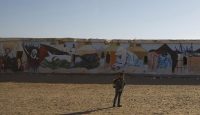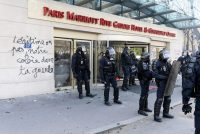
Tariff Dispute is Just One Tussle in Longer US–China Struggle
At first glance, President Donald Trump’s strategy in threatening tariffs on Chinese imports appears aimed at addressing his goals of reducing the US trade deficit with China and bringing back manufacturing jobs. In this he is unlikely to succeed. The US trade deficit is primarily caused by domestic rather than external factors: Americans consume more than they produce. Tariffs may strike Chinese imports in the short run, but soon substitutes from other low-cost labour economies will fill in. In addition, prices of goods affected by the tariffs would rise, threatening American jobs and limiting American purchasing power, while China’s retaliation with counter-tariffs on US exports to China, if implemented, would threaten more American jobs.… Seguir leyendo »
















